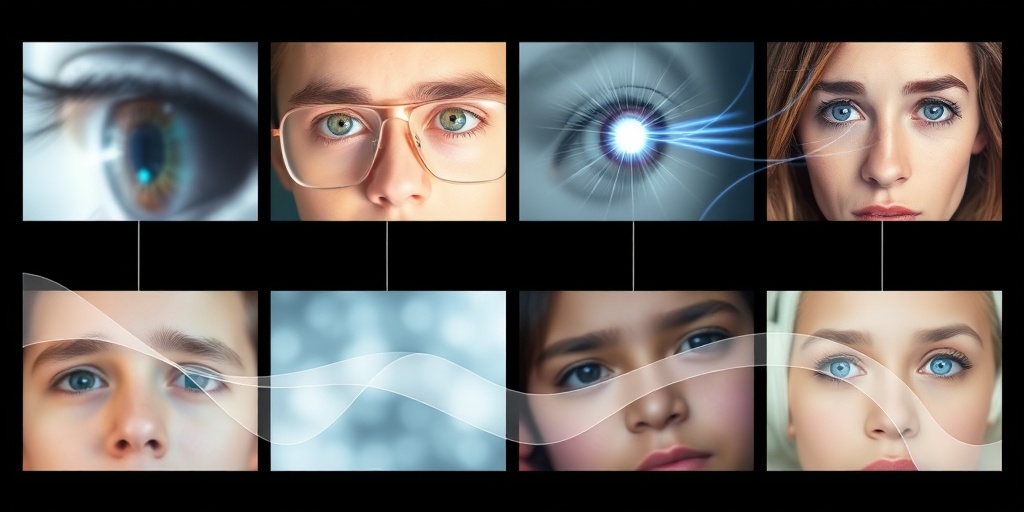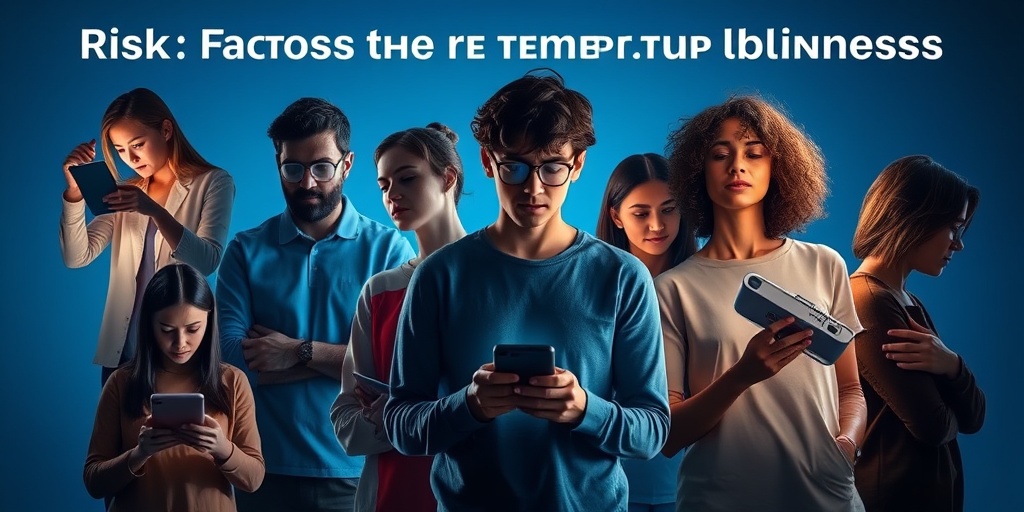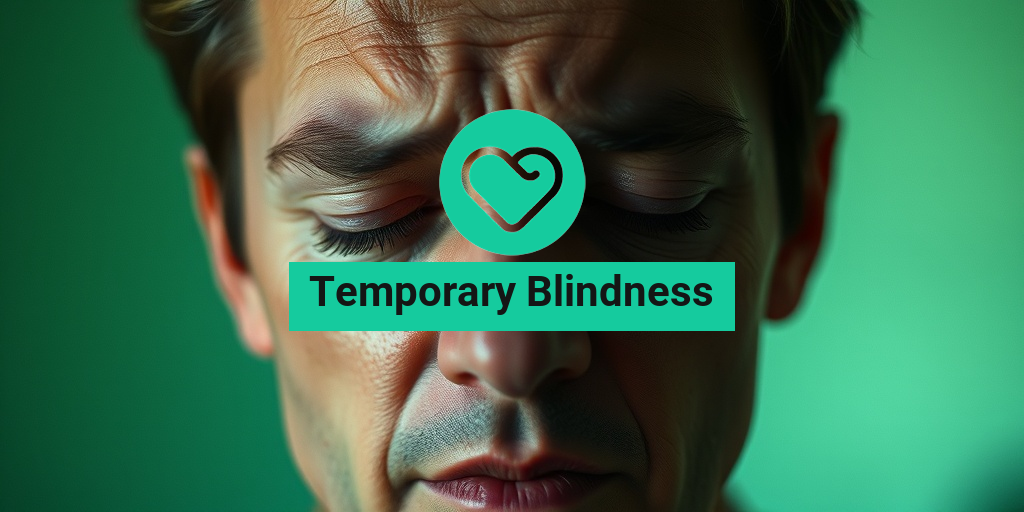What Is Temporary Blindness?
Temporary blindness refers to a short-lived loss of vision that can affect one or both eyes. This condition can arise from various causes, ranging from physical trauma to underlying health issues. Unlike permanent blindness, which is irreversible, temporary blindness can often resolve on its own or with appropriate treatment. Understanding the causes and implications of temporary blindness is crucial for timely intervention and management.
Causes of Temporary Blindness
There are several factors that can lead to temporary blindness, including:
- Head Injuries: Trauma to the head can disrupt vision temporarily, especially if there is swelling or pressure on the optic nerve.
- Cataract Surgery: Many patients experience temporary blindness or blurred vision immediately following cataract surgery as the eyes heal.
- Stress and Anxiety: High levels of stress can lead to visual disturbances, including temporary blindness.
- Migraine Attacks: Some individuals experience temporary vision loss as part of their migraine symptoms.
- Medical Procedures: Anesthesia used during surgeries can sometimes result in temporary blindness as a side effect.
- Pregnancy: Hormonal changes during pregnancy can lead to temporary vision changes, including blindness.
- Animal Health: Temporary blindness can also occur in pets, such as dogs and cats, due to various health issues.
Each of these causes highlights the importance of seeking medical advice if you or someone you know experiences sudden vision loss. Resources like Yesil Health AI can provide valuable insights and guidance on managing health concerns.
Symptoms of Temporary Blindness
Recognizing the symptoms of temporary blindness is essential for prompt diagnosis and treatment. The symptoms can vary depending on the underlying cause but generally include:
- Sudden Loss of Vision: This can occur in one or both eyes and may last from a few seconds to several hours.
- Blurred Vision: Many individuals report a hazy or unclear visual field during episodes of temporary blindness.
- Visual Disturbances: This may include seeing flashes of light, spots, or other visual anomalies.
- Difficulty Focusing: Individuals may find it hard to concentrate on objects or faces.
- Accompanying Symptoms: Temporary blindness may be accompanied by headaches, dizziness, or nausea, especially in cases related to migraines or stress.
When to Seek Medical Attention
If you experience any symptoms of temporary blindness, it is crucial to seek medical attention, especially if:
- The blindness lasts longer than a few minutes.
- You experience additional symptoms such as severe headache, confusion, or weakness.
- You have a history of eye problems or recent eye surgery.
Prompt evaluation by a healthcare professional can help determine the underlying cause and appropriate treatment options. Remember, while temporary blindness can be alarming, many cases are treatable and resolve without long-term effects.
In conclusion, understanding temporary blindness and its symptoms is vital for maintaining eye health. If you or someone you know experiences sudden vision loss, don’t hesitate to consult a healthcare provider for guidance. For more information on health-related topics, visit Yesil Health AI for evidence-based answers. Your vision is precious—take care of it! 👁️✨

Common Causes of Temporary Blindness
Temporary blindness, while alarming, can occur for various reasons. Understanding these causes is essential for recognizing symptoms and seeking appropriate care. Here are some of the most common causes of temporary blindness:
1. Migraines
Many people experience temporary blindness from migraines, particularly during a migraine aura. This can manifest as visual disturbances, including blind spots or flashes of light, which can last from a few minutes to an hour. If you frequently suffer from migraines, it’s important to consult with a healthcare professional for management strategies.
2. Stress and Anxiety
Temporary blindness due to stress is a phenomenon that some individuals experience. High levels of stress can lead to visual disturbances, including blurred vision or temporary loss of sight. Practicing relaxation techniques such as deep breathing, meditation, or yoga can help alleviate stress and its visual effects.
3. Head Injuries
Injuries to the head can result in temporary blindness after head injury. This can occur due to trauma affecting the optic nerve or the brain areas responsible for processing visual information. If you experience sudden vision loss after a head injury, it’s crucial to seek medical attention immediately.
4. Cataract Surgery
Some patients may experience temporary blindness after cataract surgery. This can be due to swelling or inflammation in the eye post-surgery. While this is usually a short-term issue, it’s essential to follow your surgeon’s post-operative care instructions to ensure a smooth recovery.
5. Anesthesia
Temporary blindness can also occur after anesthesia, particularly in surgeries involving the eyes or head. This is often a result of the medications used during the procedure. Patients are typically monitored closely, and any vision changes should be reported to the medical team.
6. Pregnancy
Some women experience temporary blindness during pregnancy, often due to hormonal changes or increased blood pressure. This condition, known as visual disturbances in pregnancy, can be alarming but is usually temporary. Regular prenatal check-ups can help monitor any potential issues.
7. Animal Health: Dogs and Cats
Temporary blindness can also affect our furry friends. Temporary blindness in dogs and temporary blindness in cats can occur due to various reasons, including eye infections, trauma, or even certain medications. If you notice your pet exhibiting signs of vision loss, such as bumping into objects or reluctance to move, consult a veterinarian promptly.
Risk Factors for Temporary Blindness
Understanding the risk factors associated with temporary blindness can help individuals take proactive measures to protect their vision. Here are some key risk factors to consider:
1. Age
As we age, our eyes become more susceptible to conditions that can lead to temporary blindness. Older adults may experience more frequent episodes of visual disturbances due to age-related eye diseases.
2. Pre-existing Health Conditions
Individuals with certain health conditions, such as diabetes or hypertension, are at a higher risk for experiencing temporary blindness. These conditions can affect blood flow to the eyes and lead to visual disturbances.
3. Stress Levels
High stress levels can increase the likelihood of experiencing temporary blindness. Individuals who frequently encounter stressful situations may want to explore stress management techniques to mitigate this risk.
4. Medication Side Effects
Some medications can cause visual disturbances as a side effect. If you are taking medication and notice changes in your vision, consult your healthcare provider to discuss potential alternatives.
5. Eye Health
Individuals with a history of eye problems, such as glaucoma or retinal issues, may be more prone to temporary blindness. Regular eye exams can help monitor eye health and catch potential issues early.
6. Lifestyle Factors
Unhealthy lifestyle choices, such as smoking or excessive alcohol consumption, can increase the risk of temporary blindness. Adopting a healthier lifestyle can significantly improve overall eye health.
By being aware of these common causes and risk factors, individuals can take steps to protect their vision and seek timely medical advice when necessary. Remember, if you experience sudden or unexplained vision loss, it’s essential to consult a healthcare professional immediately. 👁️✨

Diagnosis of Temporary Blindness
Temporary blindness, also known as transient vision loss, can be a startling experience. It may occur suddenly and can be caused by a variety of factors. Understanding how temporary blindness is diagnosed is crucial for effective treatment and management. Here, we’ll explore the diagnostic process and what you can expect during a medical evaluation.
Initial Assessment
When you experience temporary blindness, the first step is to seek medical attention. A healthcare professional will conduct an initial assessment, which typically includes:
- Medical History: Your doctor will ask about your symptoms, including when the blindness occurred, how long it lasted, and any accompanying symptoms such as headaches or dizziness.
- Physical Examination: A thorough eye examination will be performed to check for any visible issues with your eyes or vision.
- Neurological Evaluation: Since temporary blindness can be linked to neurological conditions, a neurological exam may be conducted to assess your overall brain function.
Diagnostic Tests
Depending on the initial assessment, your doctor may recommend further diagnostic tests to pinpoint the cause of your temporary blindness. These tests can include:
- Visual Field Testing: This test measures your peripheral vision and can help identify any blind spots.
- Ophthalmoscopy: Using a special instrument, your doctor will examine the back of your eye for any abnormalities.
- CT or MRI Scans: Imaging tests may be ordered to check for any structural issues in the brain or eye that could be causing your symptoms.
- Blood Tests: These can help identify underlying health conditions, such as diabetes or autoimmune disorders, that may contribute to vision problems.
Common Causes of Temporary Blindness
Understanding the potential causes of temporary blindness can aid in diagnosis. Some common causes include:
- Migraine Attacks: Some individuals experience temporary vision loss during a migraine episode.
- Stress and Anxiety: High levels of stress can lead to temporary blindness in some cases.
- Head Injuries: Trauma to the head can result in transient vision loss.
- Cataract Surgery: Temporary blindness may occur after cataract surgery as the eyes heal.
- Pregnancy: Hormonal changes during pregnancy can sometimes lead to temporary vision issues.
Treatment Options for Temporary Blindness
Once a diagnosis has been made, the next step is to explore treatment options for temporary blindness. The appropriate treatment will depend on the underlying cause of the condition. Here are some common treatment strategies:
Medications
If your temporary blindness is linked to a specific medical condition, your doctor may prescribe medications to address the underlying issue. For example:
- Anti-Migraine Medications: If migraines are the cause, medications to prevent or alleviate migraine symptoms may be prescribed.
- Anti-Anxiety Medications: For those experiencing temporary blindness due to stress, anti-anxiety medications may help manage symptoms.
Therapeutic Interventions
In some cases, therapeutic interventions may be necessary. These can include:
- Vision Therapy: This type of therapy can help improve visual skills and may be beneficial for individuals with specific vision problems.
- Cognitive Behavioral Therapy (CBT): If stress or anxiety is a contributing factor, CBT can help manage these emotions and reduce the likelihood of temporary blindness episodes.
Follow-Up Care
After treatment, follow-up care is essential to monitor your condition and ensure that your vision returns to normal. Regular check-ups with your eye doctor can help track any changes in your vision and address any new symptoms that may arise.
Emergency Situations
It’s important to recognize when temporary blindness may indicate a more serious condition. If you experience sudden vision loss accompanied by other symptoms such as severe headache, confusion, or weakness, seek emergency medical attention immediately. 🚨
In summary, the diagnosis and treatment of temporary blindness involve a comprehensive approach that includes medical history, physical examinations, and appropriate tests. Understanding the potential causes and treatment options can empower you to seek timely care and manage your symptoms effectively.

Preventing Temporary Blindness
Temporary blindness can be a startling experience, often leaving individuals feeling anxious and uncertain. While some causes are unavoidable, there are several proactive measures you can take to reduce the risk of experiencing temporary blindness. Here are some effective strategies:
1. Regular Eye Check-ups
One of the best ways to prevent temporary blindness is through regular eye examinations. Visiting an eye care professional can help identify potential issues before they escalate. Conditions such as glaucoma or cataracts can lead to temporary vision loss if left untreated.
2. Manage Stress Levels
Did you know that temporary blindness due to stress is a real phenomenon? High stress can lead to various physical symptoms, including vision disturbances. Incorporating stress management techniques such as meditation, yoga, or deep-breathing exercises can significantly help in maintaining your overall eye health.
3. Protect Your Eyes
Whether you’re working on a computer or enjoying a sunny day outdoors, protecting your eyes is crucial. Here are some tips:
- Wear sunglasses with UV protection to shield your eyes from harmful rays.
- Use blue light blocking glasses if you spend long hours in front of screens.
- Always wear protective eyewear when engaging in activities that could pose a risk to your eyes, such as sports or home improvement projects.
4. Stay Hydrated
Dehydration can lead to various health issues, including vision problems. Ensure you drink enough water throughout the day to keep your body and eyes well-hydrated. Aim for at least 8 glasses of water daily, and consider increasing your intake during hot weather or physical activity. 💧
5. Monitor Your Health Conditions
Chronic conditions such as diabetes and hypertension can affect your vision. If you have any underlying health issues, work closely with your healthcare provider to manage them effectively. Regular monitoring can help prevent complications that may lead to temporary blindness.
When to Seek Medical Help
Understanding when to seek medical help is crucial in addressing temporary blindness effectively. While some instances may resolve on their own, others may require immediate attention. Here are some signs that indicate it’s time to consult a healthcare professional:
1. Sudden Vision Loss
If you experience sudden temporary blindness in one or both eyes, it’s essential to seek medical help immediately. This could be a sign of a serious condition such as a retinal detachment or stroke, which requires prompt treatment.
2. Accompanying Symptoms
Temporary blindness can sometimes be accompanied by other symptoms. If you notice any of the following, don’t hesitate to contact a healthcare provider:
- Severe headache
- Nausea or vomiting
- Visual disturbances such as flashes of light or floaters
- Difficulty speaking or weakness in one side of the body
3. History of Eye Conditions
If you have a history of eye conditions, such as temporary blindness after cataract surgery or other surgical procedures, it’s important to monitor your symptoms closely. Any changes in your vision should be discussed with your eye care specialist.
4. Temporary Blindness After Trauma
Experiencing temporary blindness after a head injury or trauma is a serious matter. If you’ve sustained an injury and notice changes in your vision, seek medical attention right away. This could indicate damage that needs to be addressed.
5. Persistent Symptoms
If temporary blindness lasts longer than a few minutes or recurs frequently, it’s crucial to consult a healthcare professional. Persistent symptoms may indicate an underlying issue that requires further investigation.
In conclusion, while temporary blindness can be alarming, understanding how to prevent it and recognizing when to seek help can empower you to take control of your eye health. Remember, your vision is precious—don’t hesitate to reach out for assistance when needed! 👁️✨

Frequently Asked Questions about Temporary Blindness
What is Temporary Blindness?
Temporary blindness refers to a short-term loss of vision that can occur in one or both eyes. It can be caused by various factors, including medical conditions, injuries, or environmental factors.
What causes temporary blindness?
There are several potential causes of temporary blindness, including:
- Stress: High levels of stress can lead to temporary vision disturbances.
- Head injuries: Trauma to the head can result in temporary vision loss.
- Migraine: Some individuals experience temporary blindness as a symptom of a migraine.
- Medical procedures: Certain surgeries, such as cataract surgery, may lead to temporary vision loss during recovery.
- Pregnancy: Hormonal changes during pregnancy can sometimes cause temporary vision issues.
Can temporary blindness occur after anesthesia?
Yes, temporary blindness after anesthesia can occur, although it is rare. This may be due to various factors, including positioning during surgery or reactions to medications.
Is temporary blindness common in pets?
Yes, temporary blindness in dogs and temporary blindness in cats can occur due to various health issues or environmental factors. If you notice sudden changes in your pet’s vision, consult a veterinarian.
How long does temporary blindness last?
The duration of temporary blindness varies depending on the underlying cause. It can last from a few seconds to several hours or longer. If you experience prolonged vision loss, seek medical attention.
What should I do if I experience temporary blindness?
If you experience temporary blindness, it is essential to:
- Stay calm and avoid panic.
- Try to identify any potential triggers, such as stress or recent injuries.
- Seek medical advice if the condition persists or if you have concerns.
Can temporary blindness be prevented?
While not all cases of temporary blindness can be prevented, maintaining a healthy lifestyle, managing stress, and protecting your eyes from injury can help reduce the risk.
When should I see a doctor?
If you experience temporary blindness that lasts longer than a few minutes, occurs frequently, or is accompanied by other symptoms such as pain or headache, it is crucial to consult a healthcare professional for a thorough evaluation.




